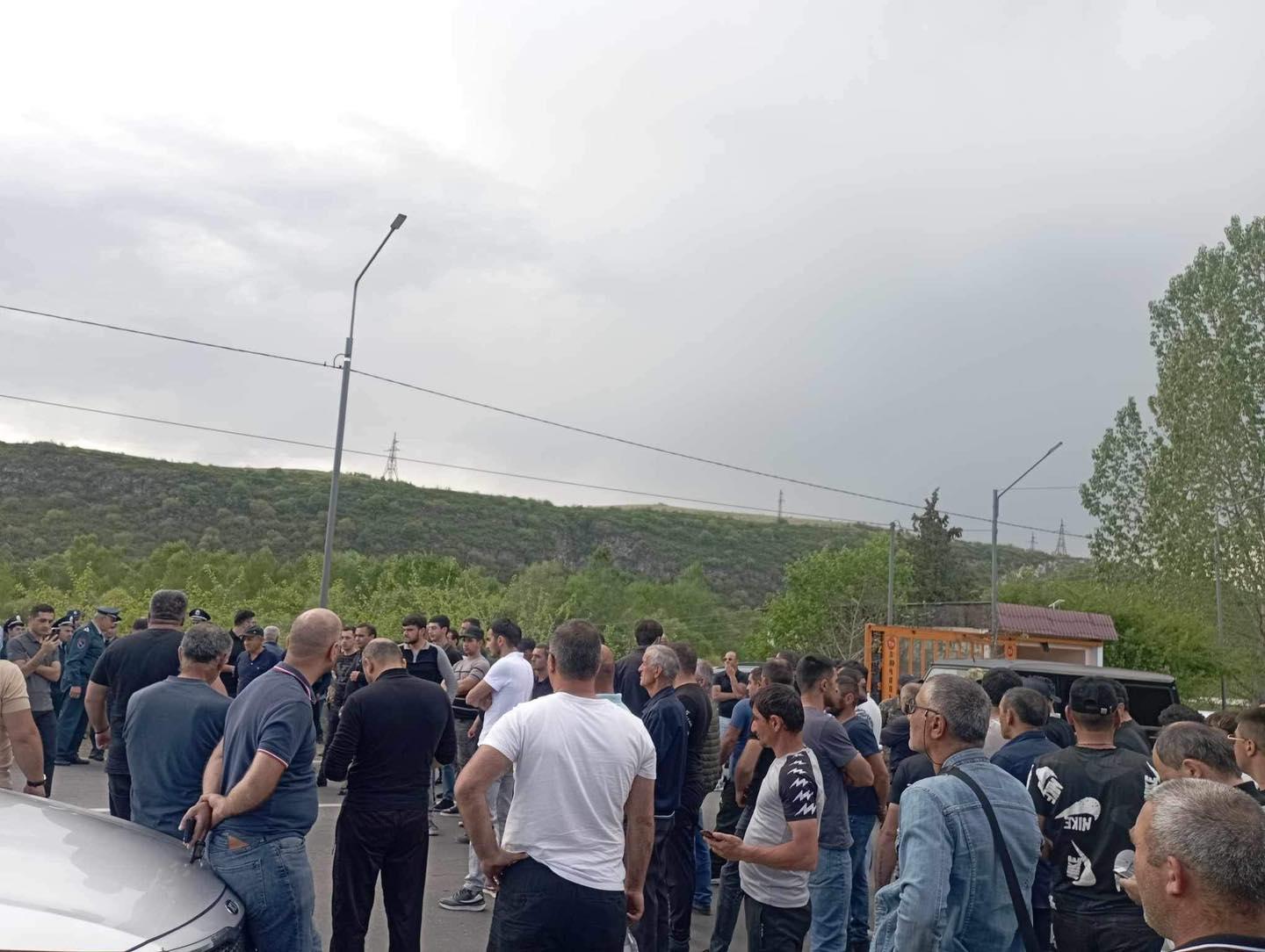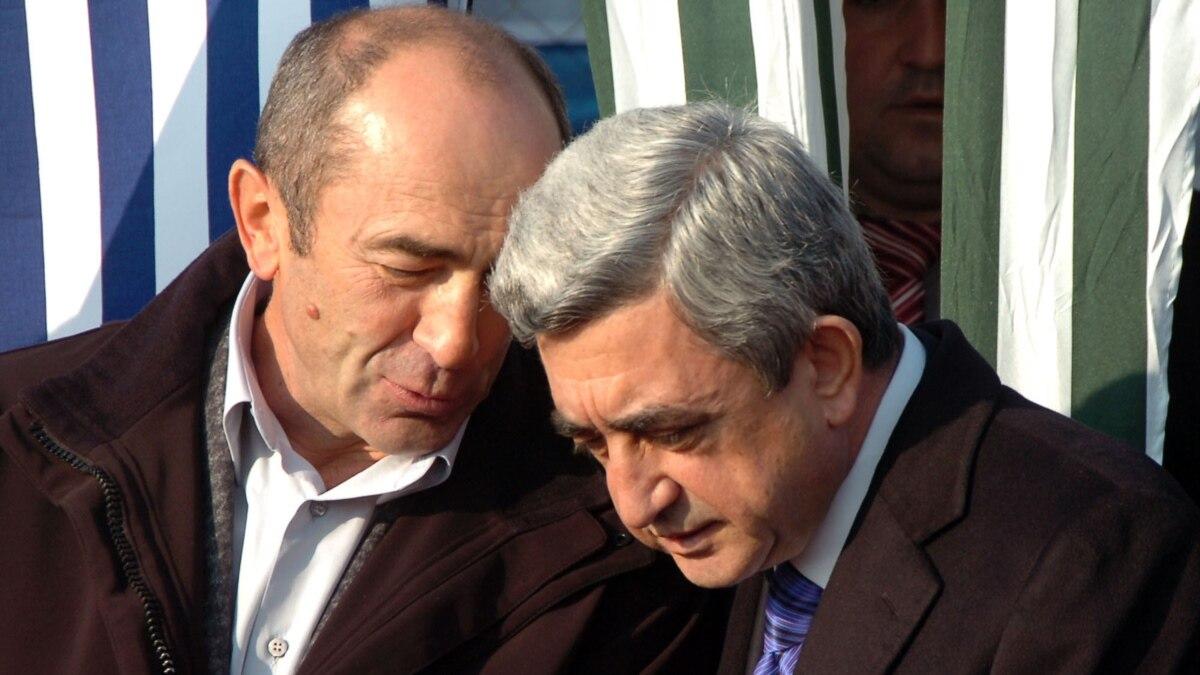Armenian Church's involvement in border disputes Challenges to peace
The signing of the protocol between Baku and Yerevan on the return to Azerbaijani control of four villages in the Gazakh region - Baghanis Ayrim, Ashagi Askipara, Kheyrimli and Gizilhajili - was without any doubt a serious positive step towards a peaceful settlement between Azerbaijan and Armenia. However, as expected, forces quickly emerged in Armenia to challenge the delimitation commission's decisions. Residents of the occupied and border villages have taken to protesting, including blocking the roads leading to these settlements.
One might think that these actions are spontaneous. However, this is not the case - the Armenian Church decided to lead this gathering. As it became known from media materials: “Bagrat Galstanyan, head of the Tavush Diocese of the Armenian Apostolic Church, joined the demonstrators and called on the villagers to unite to hold joint large-scale actions. On April 21, demonstrators prevented the authorities from starting demining work on the territory of the Church of the Holy Virgin Mary at the border". The representative of the church voiced many pathetic words addressed to various representatives of Armenian society, among which a particularly memorable appeal to the military: "Your uniform is your honour, which we respect. It is the Motherland and the state that you are defending. Say something, show something." What is this but a direct call to overthrow the legitimate authorities on the part of the Armenian Apostolic Church?

In this sense, interesting information was provided by the Radar Armenia website: “A preliminary decision was made to minimize the participation of the forces of Robert Kocharyan and Serzh Sargsyan in the ongoing events in order to prevent the failure of the struggle due to the negative rating of the former, as a result of which it was decided to transfer the leadership of the protests to Etchmiadzin . According to the same source, closed meetings were recently held on this decision with the participation of civil and ecclesiastical leaders under the leadership of the Catholicos. A road map of action was adopted. The Karabakh clan quite wisely decided that it was no longer possible to restore their authority and that any of their undertakings began to cause rejection in society by the very fact of connection with them. And a solution was found - the public protest was led by Catholicos of All Armenians Karekin II. The calculation here is that the religious feelings of the Armenians and the authority of the patriarch will play their role and the Armenian people will force the government to refuse to donate the occupied lands.”
This is very similar to the truth, especially since the church has long been in opposition to Pashinyan and his team due to attempts to limit its influence on Armenian society. True, it is still difficult to say that Garegin “led the public protest.” So far he has not made any statements regarding the return of the villages, although in general, he demonstrates somewhat defiant behaviour towards the authorities. For example, on April 16, he received the head of the EU intelligence mission, Markus Ritter, in Etchmiadzin. As Armenian publications write: “His Holiness expressed concern about the current tension and the safety of residents of border settlements, emphasizing that the encroachments and demands of Azerbaijan pose Armenia with new security challenges, and also jeopardize the peaceful negotiation process.” He seems to have his finger on the pulse but does not dare to directly lead the protests. Apparently, he feels that he could make a cruel miscalculation. But the Karabakh clan, for its part, is doing everything right. Trusting the church is a foul of the last hope, they won’t come up with anything better, and so, in the words of the hero of the cult film: “At least I tried.” But who can really seriously miscalculate is the Armenian Apostolic Church itself. Indeed, in fact, in order to show closeness to the people, she had to distance herself from the Karabakh clan, but in fact, by supporting the protests, she only showed her closeness to it.

The Armenian idea rested on three pillars: Armenia, the church and the diaspora. Moreover, Armenia in the minds of Armenians was perceived only through the prism of “miatsuma,” that is, the occupation of Karabakh and unification with it. The Church and the Diaspora in every possible way nurtured and cherished precisely this understanding of Armenia. Even the arrogant Yerevan residents, who turned their nose up at the Karabakh Shurtvatians, perceived Karabakh as something a priori Armenian. The function of the church and the diaspora was exclusively to support the Armenian idea associated with “miatsum”.
Azerbaijan, by several successive and decisive blows (victory in the 44-day war, the installation of the Lachin checkpoint, the anti-terrorist operation), which destroyed the Miatsum, literally knocked the ground out from under the feet of the entire Armenian society. The whole Armenian idea flew into tatters. It is quite natural that, having gone into oblivion, the "miatsum" took with it, like Siamese twins, both the Church and the Diaspora. They no longer exist. Of course, not literally, but symbolically - they have no perspective, in the language of psychoanalysis, they have undergone symbolic castration.
The old Armenia no longer exists, and the new one has not yet been invented, and so Pashinyan is trying to forge in society an understanding of the new Armenia, the one that consists of "29,600 square kilometres", the one that is "real, not historical Armenia". Through the string of casuistic statements of the Prime Minister, one can hear a rather shrill cry - let us love and cherish what we have been given as a state by fate.
The occupation of Karabakh was initially a fatal mistake. The people, who had gained independence within recognised borders, instead of settling down and strengthening statehood within these borders, embarked on an adventure of conquering "living space". This cannot be called anything other than arrogance.
It was arrogance and hubris that played a cruel joke on the Armenian people. And hubris is a terrible sin in Christianity. And how monstrous it is that the Church, instead of turning its flock away from this sin, on the contrary, tries in every possible way to involve the broad masses of people in it. The Armenian people intuitively feel that something is wrong here. Armenians realise that the Armenian Church has long ago broken away from its Christian roots and preaches a deeply pagan idea of national exclusivity. Armenians feel it but cannot voice it. Pashinyan is voicing it as carefully as he can.








